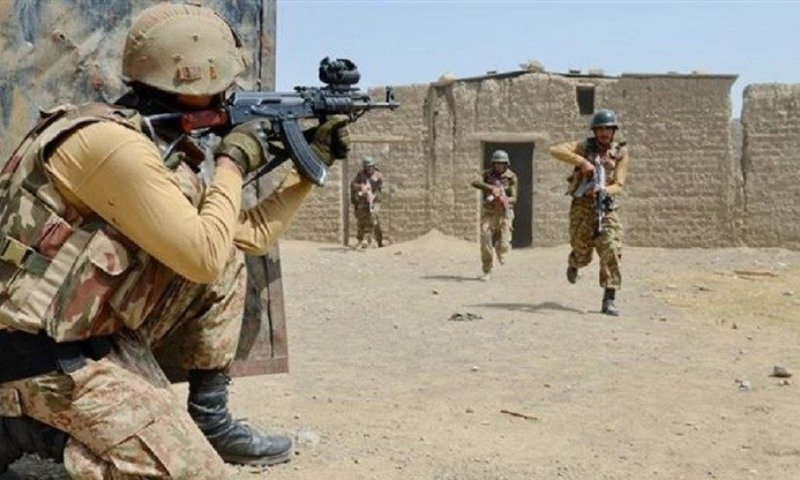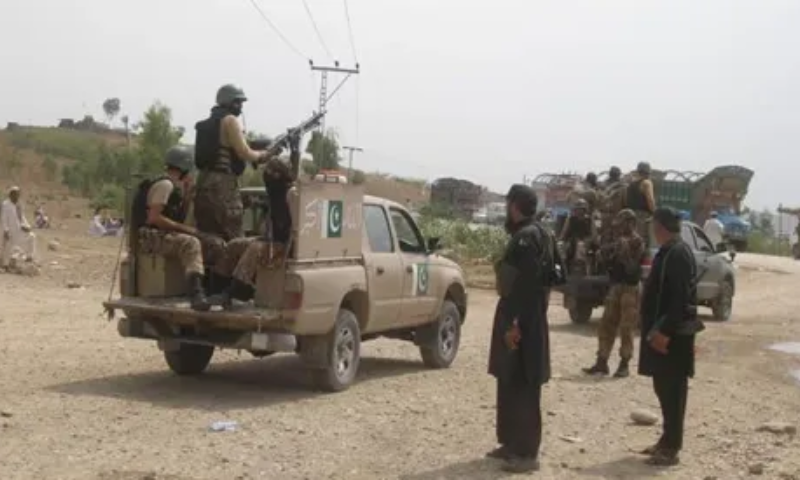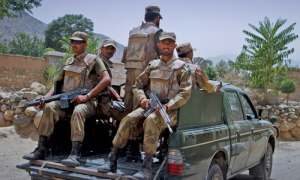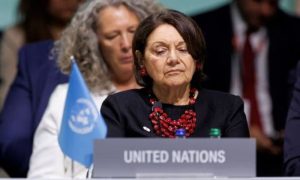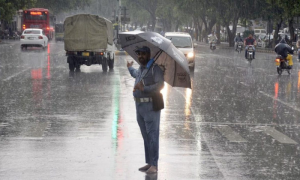A new debate began when the Prime Minister Mian Muhammad Shahbaz Sharif led Apex Committee unanimously gave approval to launch a campaign ‘Azm-e-Istehkam’ against terrorism and extremism in Pakistan. The word ‘operation’ was misunderstood and misinterpreted by a segment of the political class without waiting for the substantial details to know what this renewed approach is meant.
First of all, this is not a military operation in any selected area or province, but stepping up efforts to fight the menace of terrorism and extremism across the country. The unverified news was spread that in parts of Khyber Pakhtunkhwa, a full-fledged military operation will be launched. The so-called political class may be getting political gains, but it has confused many, particularly the people of formerly tribal districts that the population would be displaced once again.
This new approach or to say vision was presented and debated in the Apex Committee meeting, which was attended by senior members of the federal cabinet, chief ministers of the four provinces, Chief of the Army Staff General Syed Asim Munir, services chiefs, senior security and intelligence officials.
Following this new debate, the office of the Prime Minister issued a detailed statement to clarify the issue that this is not a military operation, but speeding up the already intelligence operations in the areas, where there is a serious threat to the peace and security.
The critics have been opposing the new vision, but at the same time admitting that terrorism have been taking roots. So, what options the government and security forces have to tackle this growing challenge. Some friendly countries have been supporting Pakistan’s reinvigorated policy to defeat terrorism. Peace and security are needed for the political stability, and economic development. If, the government turns a deaf ear to this threat, it could further destabilize the country.
What could Azm-e-Istehkam possibly be different this time to fight terrorism? The available information and officials, privy to the developments, say, the security and intelligence agencies have completed their preparations to neutralize the security threat before it happened. They have identified areas and hideouts of the Pakistani terrorist groups within and across the Afghan border.
The Apex Committee Under NAP Approved ‘Azm-e-Istehkam’ to Root Out All Kinds of Terrorism
Under the Azm-e-Istehkam, the security forces will carry out joint raids in the areas, identified by the intelligence agencies. Pakistan army, paramilitary forces, counter terrorism officials, police and local elders would be part of these intelligence operations. There is no plan to displace local population but the selected areas would be cordoned-off. The security forces would use drones, hi-tech weapons and technology for the surveillance and targeting the terrorists.
Internally, if one analyses the data of the attacks, carried out by the terrorist groups, southern districts of the Khyber Pakhtunkhwa are the worst affected. Most of the terrorist activities have been reported in districts Dera Ismail Khan, Tank, Lakki Marwat, Bannu, South and North Waziristan, and also in the Karak district. However, some scattered incidents have been recorded in Peshawar suburbs, Khyber, Dir, Chitral and Bajaur in the north of the province.
In Balochistan, multi-faceted challenges from the terrorist groups like the banned Tehreek-e-Taliban Pakistan, Islamic State of Khorasan, Baloch terrorist outfits as seen behind some major terrorists’ incidents.
Reports say a map of the Pakistani terrorist groups hideouts and centers have also been prepared, based on the intelligence information. Pakistan has been asking the Afghan Taliban to stop allowing Pakistani terrorists to roam freely across the border and take action against them, who have been using the Afghan soil to carry out cross border attacks. However, there is no positive response from Kabul as yet. The Afghan Taliban has been rejecting the reports that it has not been allowing anyone to use their land, but the ground realities reflected total opposite picture of this claim.
Officials, having knowledge of the issue, say Pakistani terrorist groups like TTP and Hafiz Gul Bahadar group have been using their training camps across the border in Nuristan, Kunar, Nangarhar, Paktia, Khost and Paktika. Some Baloch terrorists have been allegedly taking shelter in the southern Afghan provinces.
Pakistan may consider options to target the terrorist hideouts and training camps across the Afghan border. Pakistan defence minister Khwaja Muhammad Asif has given a warning to Afghanistan in a recent interview that Pakistan could target the terrorist groups inside Afghanistan under the renewed Azm-e-Istehkam Operation. This could have some serious implications as the ties between the two neighboring countries are at the lowest. However, Pakistan could have calculated the damage, caused by the cross-border operation. Pakistan is left with no other options as series of visits to Kabul and meetings did not give any results.
Months after the Taliban takeover Kabul, efforts were made to resolve this issue politically, but the peace talks ended with more bloodshed and regrouping of the terrorist groups. Pakistan announced amnesty for all those armed groups to lay-off arms and live a peaceful life. The Afghan Taliban facilitated the talks, but the TTP commanders rejected the offer and told to reverse the status quo of ex FATA, it would not abandon their organizational structure and would carry arms.
Are there any efforts under the renewed Azm-e-Istehkam to have a dialogue with the terrorist groups? Pakistan says no to any dialogue. Keeping in view the past experiences of the negotiations, the terrorist groups have used that as reorganizing their groups. Failure of the negotiations in past resulted into a more serious challenge.
Pakistan and Afghanistan share the longest 2611 kilometers of border and are interdependent, both countries could move forward to have improved relations. Now Afghanistan should respond to Pakistan’s repeated calls to put an end to the ongoing cross-border tension. A serious political dialogue between Pakistan and Afghanistan is a way forward.













